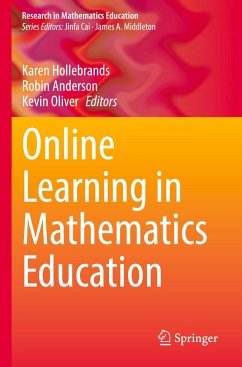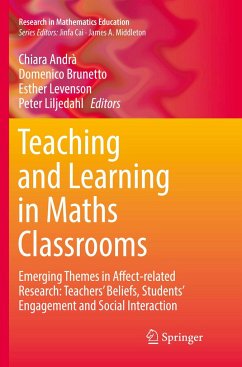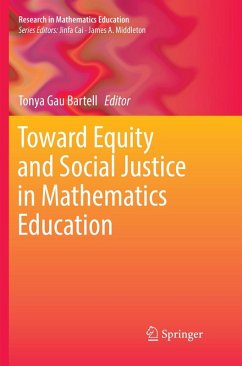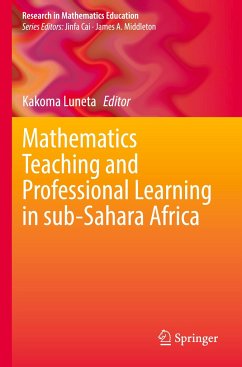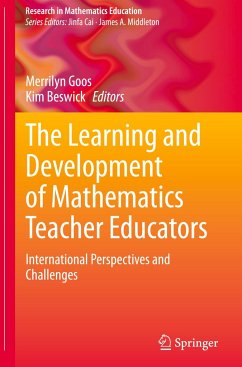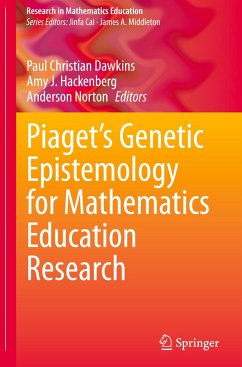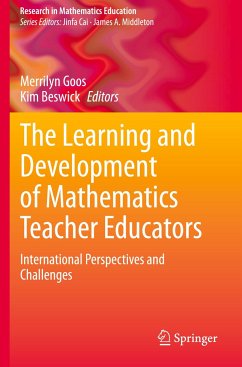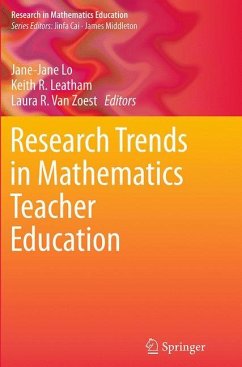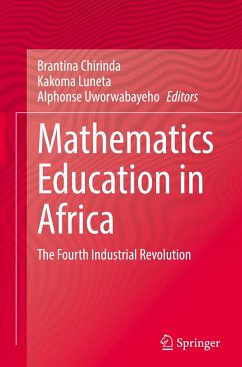
Online Learning in Mathematics Education

PAYBACK Punkte
65 °P sammeln!
This book brings together research from mathematics education and instructional design to describe the development and impact of online environments on prospective and practicing teachers' learning to teach mathematics. The move to online learning has steadily increased over the past decade. Its most rapid movement occurring in 2020 with most instruction taking place remotely. Chapters in this book highlight issues related to teacher learning in three main contexts: formal, informal, and experiential or practice-based. This volume brings together researchers from the different but related fiel...
This book brings together research from mathematics education and instructional design to describe the development and impact of online environments on prospective and practicing teachers' learning to teach mathematics. The move to online learning has steadily increased over the past decade. Its most rapid movement occurring in 2020 with most instruction taking place remotely. Chapters in this book highlight issues related to teacher learning in three main contexts: formal, informal, and experiential or practice-based. This volume brings together researchers from the different but related fields of instructional design and mathematics education to engage in dialogue around how we design and study the impacts of online learning in general and online mathematics education more specifically.
The book is very timely with most instruction taking place online and mathematics educators addressing challenges related to supporting teachers' formal, informal, and experiential learning online. A chapter in each section will synthesize ideas presented by instructional designers and mathematics educators as it relates to teacher learning in each context. At the end of each section, a retrospective chapter is presented to reflect on what the different perspectives offer to better understand mathematics teacher learning in online environments.
This book is of interest to mathematics educators, researchers, teacher educators, professional development providers, and instructional designers.
The book is very timely with most instruction taking place online and mathematics educators addressing challenges related to supporting teachers' formal, informal, and experiential learning online. A chapter in each section will synthesize ideas presented by instructional designers and mathematics educators as it relates to teacher learning in each context. At the end of each section, a retrospective chapter is presented to reflect on what the different perspectives offer to better understand mathematics teacher learning in online environments.
This book is of interest to mathematics educators, researchers, teacher educators, professional development providers, and instructional designers.



